

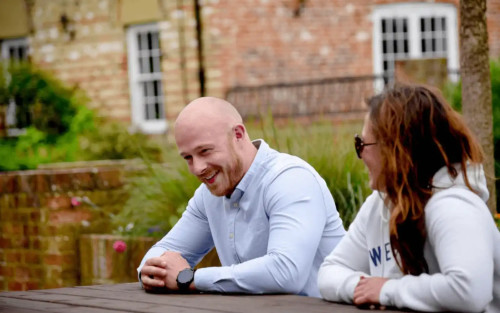






PROMIS Hay Farm
Verified Center
This provider's information has been quality-checked by Recovery.com's Research Team for accuracy and completeness, including center verification through appropriate third-party organizations.
Treatment Focus
This center treats substance use disorders and mental health conditions. You'll receive individualized care catered to your unique situation and diagnosis, learn practical skills for recovery, and make new connections in a restorative environment.
Primary Level of Care
Offering intensive care with 24/7 monitoring, residential treatment is typically 30 days and can cover multiple levels of care. Length can range from 14 to 90 days typically.
Treatment Focus
This center treats substance use disorders and mental health conditions. You'll receive individualized care catered to your unique situation and diagnosis, learn practical skills for recovery, and make new connections in a restorative environment.
Primary Level of Care
Offering intensive care with 24/7 monitoring, residential treatment is typically 30 days and can cover multiple levels of care. Length can range from 14 to 90 days typically.
Private Pay
You pay directly for treatment out of pocket. This approach can offer enhanced privacy and flexibility, without involving insurance. Exact costs vary based on program and length of stay. Contact the center for specific details.
PROMIS Hay Farm
PROMIS Hay Farm
About PROMIS Hay Farm
Since 1986, PROMIS has helped clients recover from the challenges of mental health, substance addiction, behavioural health, and eating disorders. Qualified clinicians and therapists deliver a range of services including residential primary treatment, detox, individual therapy, family therapy, and aftercare. Their small staff-to-client ratio and flexible lengths of stay—a minimum of 1 week—ensure clients get the attention and bespoke care they need.
Make Progress with Personalized, Comprehensive Care
PROMIS’ compassionate professionals are trusted allies clients can count on. Their integrated team includes doctors, nurses, psychiatrists, psychologists, therapists, and support staff, blending diverse expertise to provide comprehensive care. Treatments are highly personalized, combining evidence-based approaches like cognitive behavioural therapy (CBT), dialectical behaviour therapy (DBT), and eye movement therapy (EMDR) with holistic therapies such as equine therapy, somatic experiencing, and life coaching. Clients benefit from daily one-to-one therapy sessions, ensuring continuous progress and tailored support, with expert clinicians also offering medication management.
Develop Lasting Strategies for Eating Disorder Recovery
PROMIS provides comprehensive care for clients seeking to reclaim their lives from eating disorders, such as binge eating, anorexia nervosa, and bulimia nervosa. They combine psychological interventions, nutritional guidance from on-site nutritionists, and medical monitoring to create a personalized treatment plan. Their approach includes cognitive behavioural therapy (CBT), which helps clients identify and restructure distorted thoughts, face anxiety-provoking situations, and develop critical coping skills.
Find Continued Support with 12-Month Aftercare
People in recovery are at their most vulnerable during their first year after treatment, which is why PROMIS has a 12-month aftercare programme. Included as part of this ‘continuous recovery’ programme, clients can attend therapy for 24 days over a 12-month period.
Relax in Countryside Luxury
PROMIS Hay Farm is a stress-free setting where a homely feel meets modern treatment methods for a more introspective healing journey. Their wheelchair-accessible, 14-bed home provides each client a private room with plenty of personal space, including a flat-screen TV. Gourmet chefs serve fresh and nourishing food, and they can accommodate dietary preferences. Clients enjoy a gym and spa facilities, a business centre, a recreation room, and a dedicated art therapy and music room. Outside, clients can take advantage of PROMIS’ large gardens and the neighboring nature reserves and woodlands. PROMIS also offers immediate admission to take away the burden of waiting for recovery, and pick-up services all over the United Kingdom.

Highlights from the Center
Highlights
These highlights are provided by and paid for by the center.
Therapeutic Location
Customized Treatment Plans
Holistic Approach
Eating Disorders Program
Center Overview
Treatment Focus
This center treats substance use disorders and mental health conditions. You'll receive individualized care catered to your unique situation and diagnosis, learn practical skills for recovery, and make new connections in a restorative environment.

PROMIS Hay Farm
Pricing and Program Length
Estimated Center Costs
The cost listed here (£7,000 / week), is an estimate of program cost. Center price can vary based on program and length of stay. Contact the center for more information. Recovery.com strives for price transparency so you can make an informed decision.




PROMIS London Location
Recovery.com Verified Listing
Recovery.com verified that the name, location, contact information and license to operate for this treatment provider are valid and up-to-date.

CQC Rating: Good

Registered with Companies House
Recovery.com is an independent, third-party mental health resource. Verification does not imply endorsement and does not guarantee the quality of treatment services.
Meet Your Care Team

Robin Lefever
Managing Director
BSc in Psychology

Dr. Sarah Maginn
Psychiatrist

Dr. Laimonas Goncaras
Primary Care Physician
MD

Clayton Grant
Senior Therapist

Linda Stevens
Senior Therapist
Addictive Behaviors Counseling Diploma, CSCT Diploma in Counseling

Samiya Anwar
Senior Therapist
MSc. Clinical Psychology, MSc. Forensic Psychology and Mental Health

Lucy Moorhead
Senior Therapist
MSc in Psychotherapy

Lucy Britton
Admissions and Professional Relationships Manager
Advanced Diploma in Humanistic Integrative Counselling

Hazel Lydon
Registered Mental Health Nurse
Psychology Degree & Nursing Degree
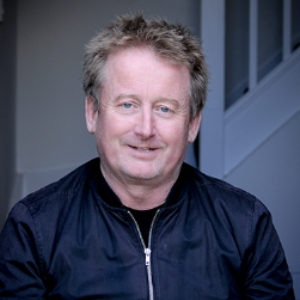
Chris Rowbotham
Registered Mental Health Nurse
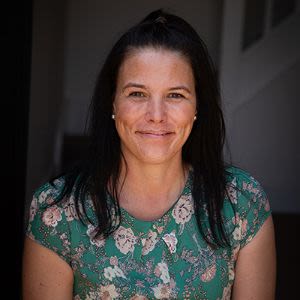
Natalie Ash
Registered Nurse

Sarah Chrystal
Therapist
MSc in Addiction Counselling

Kerry Nolan
Therapist

Janet Hand
Creative Therapist
Doctorate and Masters (distinction) in Psychoanalytic Studies, PG CERT in Psychodynamic Counselling, Prof Diploma in Integrative Counselling (distinction)

Ravi Holy
Therapist

Sarah Pini
Therapist
Level 6 in Integrative Counselling with Distinction at Inter-Psyche

Aishwarya Joshi
Therapist
Masters in Clinical Psychology

Sofia Michaels
Equine Practitioner
MSc in Animal Health & Welfare

Louise Jukes
Trainee Therapist
BA with Honours
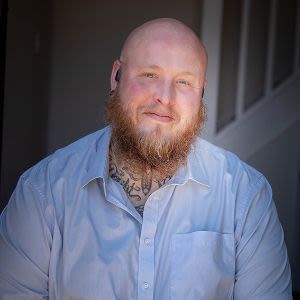
Adam Smith
Operations Manager / HSE Officer

Charlotte Broster
Media Production

Chester Page
Clinical and Compliance Manager
Master’s Level in Psychology and Therapeutic Interventions

Gilly Marshall
Admissions Officer
First-Class Degree in Counselling, Coaching & Mentoring
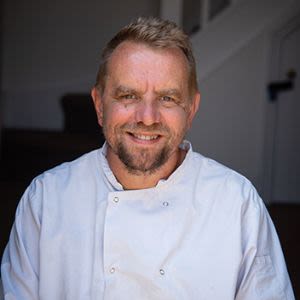
Mark Smisson
Head Chef
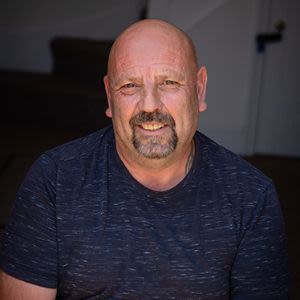
Mark Milsom
Head of Maintenance

Tracy Darrall
Head of Housekeeping
Your Care Options
Specializations
Alcohol
Using alcohol as a coping mechanism, or drinking excessively throughout the week, signals an alcohol use disorder.
Anxiety
Anxiety is a common mental health condition that can include excessive worry, panic attacks, physical tension, and increased blood pressure.
Detox
Detox fully and safely removes toxic substances from the body, allowing the next steps in treatment to begin with a clean slate.
Depression
Symptoms of depression may include fatigue, a sense of numbness, and loss of interest in activities. This condition can range from mild to severe.
Drug Addiction
Drug addiction is the excessive and repetitive use of substances, despite harmful consequences to a person's life, health, and relationships.
Eating Disorders
An eating disorder is a long-term pattern of unhealthy behavior relating to food. Most people with eating disorders have a distorted self-image.
Trauma
Some traumatic events are so disturbing that they cause long-term mental health problems. Those ongoing issues can also be referred to as "trauma."
Who We Treat
Executives
Executive treatment programs typically directly support the needs of people who manage businesses and may provide flexible schedules and office space to allow work during treatment.
Men and Women
Men and women attend treatment for addiction in a co-ed setting, going to therapy groups together to share experiences, struggles, and successes.
Professionals
Busy, high-ranking professionals get the personalized treatment they need with greater accommodations for work, privacy, and outside communication.
Treatment Services
Detox
Detox fully and safely removes toxic substances from the body, allowing the next steps in treatment to begin with a clean slate.
Licensed Primary Mental Health
Some primary care providers offer mental health diagnosis and treatment. This can prevent patients from developing more serious conditions.
Residential
In a residential rehab program, patients live onsite, with access to daily treatment and 24-hour care. An average stay is 30-90 days.
Approaches
Evidence-Based
A combination of scientifically rooted therapies and treatments make up evidence-based care, defined by their measured and proven results.
Experiential
Expressive tools and therapies help patients process past situations, learn more about themselves, and find healing through action.
Holistic
A non-medicinal, wellness-focused approach that aims to align the mind, body, and spirit for deep and lasting healing.
Individual Treatment
Individual care meets the needs of each patient, using personalized treatment to provide them the most relevant care and greatest chance of success.
Therapies
1-on-1 Counseling
Patient and therapist meet 1-on-1 to work through difficult emotions and behavioral challenges in a personal, private setting.
Meditation & Mindfulness
A practiced state of mind that brings patients to the present. It allows them to become fully aware of themselves, their feelings, and the present moment.
Trauma-Specific Therapy
This form of talk therapy addresses any childhood trauma at the root of a patient's current diagnosis.
Mindfulness Therapy
This ancient practice can be mental, emotional, and even spiritual. In meditation, you focus your attention on the present moment without judgement.
Art Therapy
Visual art invites patients to examine the emotions within their work, focusing on the process of creativity and its gentle therapeutic power.
Equine Therapy
Guided interactions with trained horses, their handler, and a therapist can help patients improve their self-esteem, trust, empathy, and social skills.
Conditions We Treat
Pornography Addiction
A person with a porn addiction is emotionally dependent on pornography to the point that it interferes with their daily life and relationships.
Grief and Loss
Grief is a natural reaction to loss, but severe grief can interfere with your ability to function. You can get treatment for this condition.
Personality Disorders
Personality disorders destabilize the way a person thinks, feels, and behaves. If untreated, they can undermine relationships and lead to severe distress.
Anger
Although anger itself isn't a disorder, it can get out of hand. If this feeling interferes with your relationships and daily functioning, treatment can help.
Anxiety
Anxiety is a common mental health condition that can include excessive worry, panic attacks, physical tension, and increased blood pressure.
Bipolar
This mental health condition is characterized by extreme mood swings between depression, mania, and remission.
Burnout
Burnout entails mental and physical exhaustion, and leads to a severe lack of fulfillment. This condition is often caused by overwork.
Depression
Symptoms of depression may include fatigue, a sense of numbness, and loss of interest in activities. This condition can range from mild to severe.
Eating Disorders
An eating disorder is a long-term pattern of unhealthy behavior relating to food. Most people with eating disorders have a distorted self-image.
Substances We Treat
Alcohol
Using alcohol as a coping mechanism, or drinking excessively throughout the week, signals an alcohol use disorder.
Benzodiazepines
Benzodiazepines are prescribed to treat anxiety and sleep issues. They are highly habit forming, and their abuse can cause mood changes and poor judgement.
Co-Occurring Disorders
A person with multiple mental health diagnoses, such as addiction and depression, has co-occurring disorders also called dual diagnosis.
Cocaine
Cocaine is a stimulant with euphoric effects. Agitation, muscle ticks, psychosis, and heart issues are common symptoms of cocaine abuse.
Drug Addiction
Drug addiction is the excessive and repetitive use of substances, despite harmful consequences to a person's life, health, and relationships.
Heroin
Heroin is a highly addictive and illegal opioid. It can cause insomnia, collapsed veins, heart issues, and additional mental health issues.
Methamphetamine
Methamphetamine, or meth, increases energy, agitation, and paranoia. Long-term use can result in severe physical and mental health issues.
Opioids
Opioids produce pain-relief and euphoria, which can lead to addiction. This class of drugs includes prescribed medication and the illegal drug heroin.
Languages
Care Designed for Your Needs
Personal Amenities
Amenities
Special Considerations
Clients can bring their own pet(s)
For greater comfort and healing, pet-friendly treatment centers welcome dogs and animal companions to stay with their owners while they attend treatment.
Pet Friendly
For greater comfort and healing, pet-friendly treatment centers welcome dogs and animal companions to stay with their owners while they attend treatment.
Flexible technology policies
Centers with flexible technology policies allow professionals to stay in touch with work and give patients a greater sense of connection and normalcy.
Healthy Meals are provided
Great food meets great treatment, with providers serving healthy meals to restore nutrition, wellbeing, and health.
Activities
Yoga
Yoga is both a physical and spiritual practice. It includes a flow of movement, breathing techniques, and meditation.
Off-Site Activities
Yoga
Yoga is both a physical and spiritual practice. It includes a flow of movement, breathing techniques, and meditation.
Off-Site Amenities

Learn More About the Center
EMDR Treatment for Trauma
Learn about this effective method for alleviating distress associated with traumatic memories.
Mental Health Treatment
Find out more about the variety of mental health conditions treated at PROMIS.
Eating Disorder Treatment
Read about the types of eating disorders and the therapies PROMIS uses to treat them.
Review from an American Clinician
Read an outside perspective on PROMIS’ programs and facilities from a counselor from the States.





